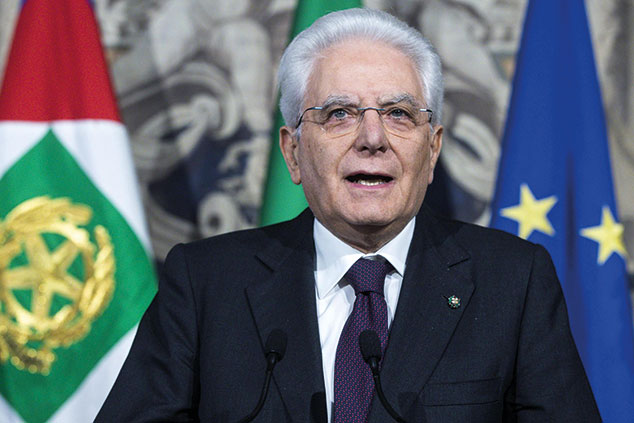
Italy has had around 65 governments since World War II. So the collapse of another one seems par for the course. In any case, Italy has hitherto always muddled through and occasionally even prospered despite its dysfunctional politics. But “the present impasse is very different”, says The Times. It could “tear the country from its European moorings”.
The establishment strikes back
Two populist parties, the Northern League and the Five Star Movement, secured half the votes in an election last March. They were about to form a government early this week when President Sergio Mattarella vetoed their choice of finance minister, Paolo Savona, who is a critic of the euro and wants to extract Italy from it.
The two parties promptly called off their attempts to establish an administration. Mattarella has appointed a former official of the International Monetary Fund to form an interim government, with fresh elections expected in the autumn.
Swearing in Savona may “have panicked capital markets, which are already agitated by the prospect of a populist partnership running the eurozone’s third-largest economy”, says Economist.com. But the relief was short lived. The gap between the yields on Italian and German ten-year bonds, a barometer of investors’ nervousness over Italy, soon returned to its level of around 2% after narrowing due to Mattarella’s veto. The yield on the Italian two-year bond soared by 0.5% last Monday alone, the biggest daily move since the height of the euro crisis in 2012.
A new standoff
Italy’s establishment may merely have bought itself some time. Blocking Savona has created a new grievance the populists will be eager to exploit: the notion that the government is thwarting the will of the people. The more eurosceptic of the two parties, the Northern League, has gained support in recent polls.
It will be easier now for the populists to turn the elections into a referendum on Europe, says Tom Kington in The Times. Last time, the two parties “[skirted] round” the single currency. Now they will be “hoping to create a Brexit moment”. The populists will repeatedly emphasise the damage done to the economy by the euro straitjacket, which we outlined last week, and the latest apparent slowdown in European growth will help their case. A clash with the markets and the northern bloc of the eurozone, led by Germany, which always insists on strict spending rules, looks inevitable. Populists always insist that they are going to break spending rules but that “depends crucially on investors being willing to lend them the money to do so”, as Jeremy Warner points out in The Sunday Telegraph.
Given Italy’s towering debt load of more than 130% of GDP, and the populists’ plans to add a lot more to it, they are highly unlikely to get the cash. This in turn implies a sharp rise in Italian bond yields as investors sell off its debt, raising Rome’s borrowing costs to eye-watering levels. With Germany unwilling to contemplate a bailout, it will be 2012 all over again.